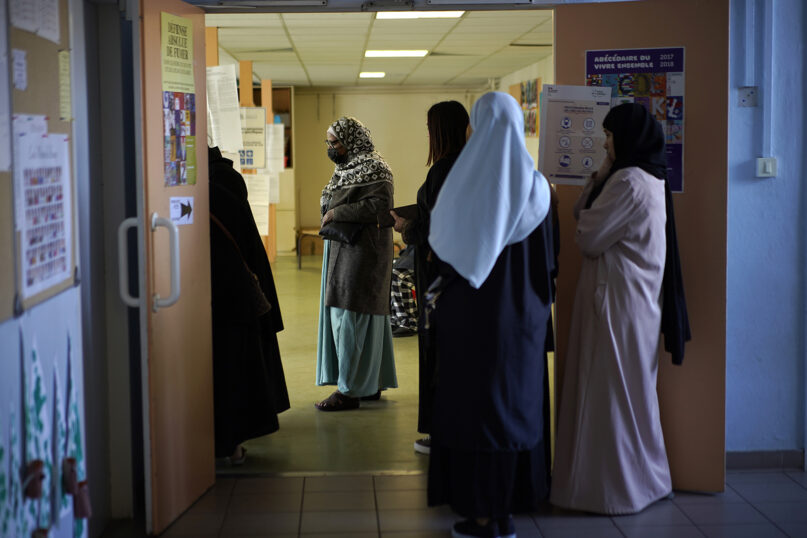“Cette femme qui voit sans être vue frustre le colonisateur. Il n’y a pas réciprocité.”
These words, written in 1959 by Algerian revolutionary Frantz Fanon, described the deep frustration of the country’s French rulers at the Muslim woman’s insistence on covering her hair with the hijab, her body with the abaya and, often, her face with the haik. Fanon writes that “The woman who sees without being seen frustrates the colonizer. There is no reciprocity. She does not yield herself, does not give herself, does not offer herself.”
The French saw the Algerian Muslim woman’s covering as a threat, an unwillingness to comply with French norms and an affront to the colonizer’s right to subjugate the Algerian to French customs. Fanon would pass away one year prior to Algeria’s independence in 1962, but his contributions to the intellectual revolutionary effort live on. Posthumously, Fanon’s writings continue to unveil, so to speak, how post-colonial France remains steadfast in its haughty ways.
Just this week, news of a public school ban on the abaya — the ankle-length dress worn by many Muslim women — introduced another episode in the saga of France’s attempts to crack down on public displays of religious affiliation in the name of secularism.
In his announcement of the abaya ban, French Education Minister Gabriel Attal said that “the abaya has no place in our schools” and that “schools must … be protected from religious proselytism, from any embryo of communitarianism … ”
In saying as much, Attal confirms that France’s affair with secularism has always lacked the neutrality vis-à-vis religion that it claims.
What is it that leads Attal to interpret a schoolgirl’s choice to wear the abaya as a form of religious proselytism?
For decades, France has been locked in a battle over one of its most revered principles: laïcité, the idea that in public life religion will be invisible. Some legal scholars argue that France’s policy is in fact caught between two ideas: legislative secularism — a simple separation of the state and religious institutions — and constitutional secularism, a more complex proposition that requires interpretation and nuance, something that one article of the French Constitution cannot possibly explain.
The “secularism” of France, much like the “freedom of speech” that has allowed French publications to print offending images of the Prophet Muhammad, seems to many Muslims to be another excuse to beat them down.
If France wishes to move beyond petty bans on religious symbols, it must take two steps: First, and arguably most importantly, the French must work to rid its culture of the disease of supremacy over its former colonial subjects. It is this supremacy that inspired the niqab ban of 2010 and the recent abaya ban. It led to the passing of a 2004 bill prohibiting the wearing of religious symbols in public schools. This same supremacy inspired more than a century of a French colonization that demanded assimilation and disintegration. It is an Islamophobic supremacy that uniquely targets Muslims in France, most of whom are immigrants from former French colonies.
The second step is to redefine its understanding of religious neutrality in the public sphere. How are religious symbols an affront to the freedoms of others? Why is the government obsessed with assimilation to historically French customs? Resolving these problems would nurture an environment that celebrates and embraces its current religious diversity rather than clinging to archaic colonial-era demands of its colonized subjects.
It is no coincidence that bans like this one have primarily targeted Muslim women in France. In “A Dying Colonialism,” the source of the quote above, Fanon explains: “converting the woman, winning her over to the foreign values, wrenching her free from her status, was at the same time achieving a real power over the man and attaining a practical, effective means of destructuring Algerian culture.”
While actual colonization is no more and France no longer subjugates Algerian Muslim women at military checkpoints in Algiers and Constantine, it continues to demand complete cultural, social and religious assimilation. Until France adopts the metaphorical and literal abaya as part of an ever-changing and evolving culture, built on abstract principles rather than garments, its repeated “commitment to secular principles” remains a dog whistle for its deep repression of Muslims domestically and abroad.






